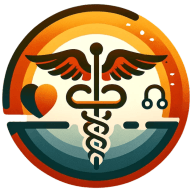6 Approaches to Resolving Healthcare Team Conflicts
Navigating the complexities of healthcare requires more than medical expertise; it demands effective team dynamics. Conflict within healthcare teams can compromise patient care and staff well-being. This article explores practical strategies for fostering collaboration and resolving disputes among medical professionals.
- Foster Professional Communication Among Physicians
- Implement Structured Conflict Resolution Protocols
- Provide Interprofessional Communication Skills Training
- Establish Neutral Mediators for Team Disputes
- Utilize Team-Building Exercises to Improve Collaboration
- Develop Clear Role Definitions and Responsibilities
Foster Professional Communication Among Physicians
When it comes to conflicts between doctors on our healthcare platform, they often stem from genuine concern for patient care.
At SeriousMD and NowServing, we address these conflicts by focusing on professional communication. We remind physicians that our platform is designed to improve continuity of care, not to create friction between providers.
When conflicts arise, we initially reach out to the doctors individually to understand their concerns. We emphasize that differing medical opinions are normal in healthcare, but how these differences are communicated matters greatly.
We've found that most conflicts can be resolved through private conversations that refocus attention on the patient's needs rather than professional disagreements. Our platform facilitates secure provider-to-provider communication that can help resolve these issues privately and professionally.
This approach has helped us maintain a professional community of providers while ensuring that patients receive the benefit of comprehensive care, regardless of which doctors they see on our platform.

Implement Structured Conflict Resolution Protocols
Implementing structured conflict resolution protocols and procedures is essential for addressing healthcare team conflicts effectively. These protocols provide a clear framework for identifying and addressing issues as they arise. By establishing a step-by-step process, team members can approach conflicts in a systematic and professional manner. This approach helps to depersonalize disagreements and focus on finding solutions rather than assigning blame.
It also ensures that all parties have an opportunity to express their concerns and contribute to the resolution process. Healthcare organizations should prioritize the development and implementation of these protocols to foster a more harmonious work environment. Take the initiative to advocate for the adoption of structured conflict resolution procedures in your healthcare setting.
Provide Interprofessional Communication Skills Training
Providing ongoing interprofessional communication skills training is crucial for preventing and managing conflicts within healthcare teams. Effective communication is the foundation of successful teamwork in any healthcare setting. Regular training sessions can help team members develop active listening skills, empathy, and the ability to express themselves clearly. These skills are invaluable when addressing complex patient care issues or navigating interpersonal challenges.
By improving communication, healthcare professionals can reduce misunderstandings and build stronger, more collaborative relationships. This approach also helps create a culture of open dialogue and mutual respect among team members. Encourage your healthcare organization to invest in comprehensive communication skills training programs for all staff members.
Establish Neutral Mediators for Team Disputes
Establishing neutral mediators for healthcare team disputes can significantly improve conflict resolution outcomes. These impartial third parties can facilitate productive discussions and help team members find common ground. Mediators bring an outside perspective, which can be invaluable in breaking deadlocks or identifying solutions that may not be apparent to those directly involved in the conflict.
They can also ensure that all voices are heard and that power imbalances do not influence the resolution process. By providing a safe space for open dialogue, mediators help maintain professional relationships even in the face of disagreements. Consider advocating for the inclusion of trained mediators in your healthcare team's conflict resolution toolkit.
Utilize Team-Building Exercises to Improve Collaboration
Utilizing team-building exercises to improve collaboration can be an effective approach to preventing and resolving conflicts. These activities help team members develop trust, improve communication, and foster a sense of shared purpose. By participating in exercises that require cooperation and mutual understanding, healthcare professionals can build stronger interpersonal relationships outside of their typical work interactions.
This improved rapport can make it easier to address conflicts when they do arise, as team members are more likely to approach disagreements with empathy and goodwill. Team-building exercises also provide opportunities to practice problem-solving skills in a low-stakes environment. Propose regular team-building sessions to your healthcare leaders as a proactive measure for conflict prevention.
Develop Clear Role Definitions and Responsibilities
Developing clear role definitions and responsibilities is a fundamental step in minimizing healthcare team conflicts. When each team member understands their specific duties and how they fit into the larger care process, there is less room for confusion or overlapping responsibilities. Clear roles help prevent territorial disputes and ensure that all aspects of patient care are covered without unnecessary duplication of efforts.
This approach also makes it easier to identify and address any gaps in care or communication. By establishing well-defined roles, healthcare teams can operate more efficiently and with reduced friction between members. Work with your colleagues and supervisors to review and clarify role definitions within your healthcare team.

